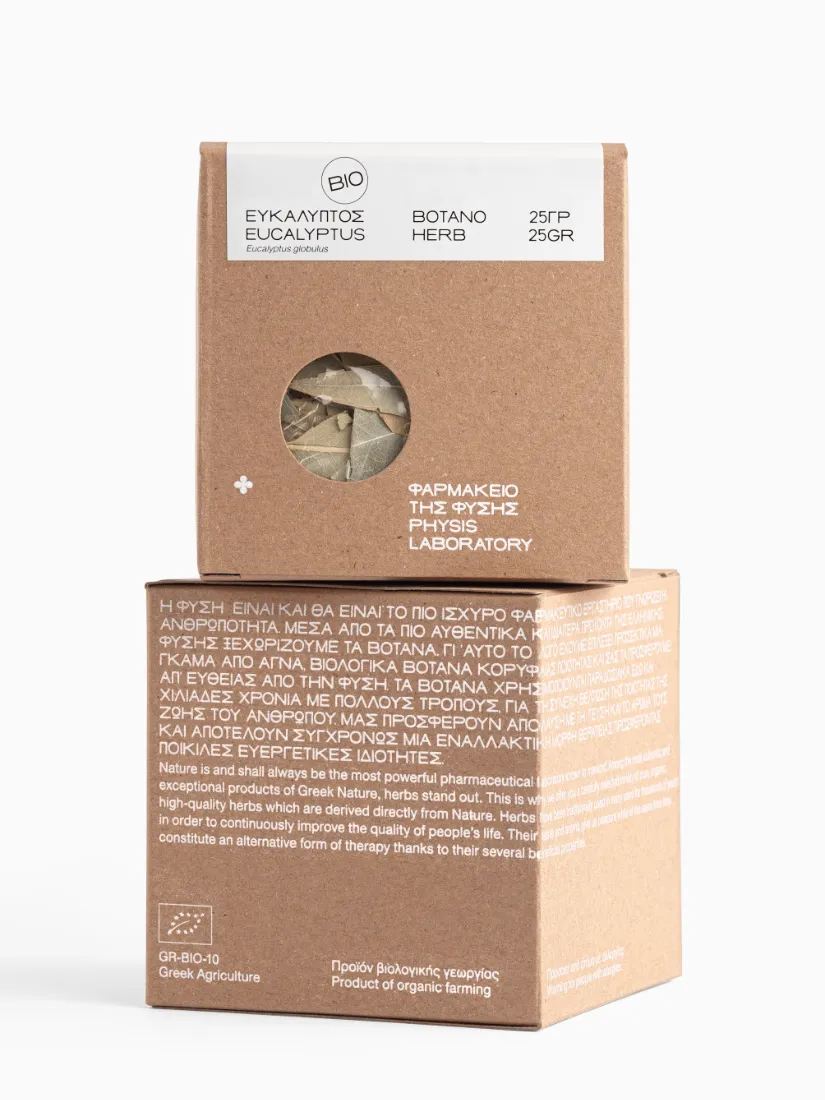Eucalyptus is one of the most well-known genera of the Myrtaceae family, but also one of the most popular and widespread medicinal trees in the world.
-Eucalyptus leaf extract has been traditionally used in many ailments and diseases, such as colds, wound healing, sore throat, and intestinal infection.
-Studying the beneficial properties of eucalyptus, it is initially considered a natural antimicrobial and antioxidant agent, because the compounds of its extract, such as flavonols, hydroxybenzoic acids, and hydrolysable tannins, and alcohols, can act as free radical scavengers and therefore block the production of ROS, increase cell viability and antioxidant enzymes activity, avoiding oxidative stress.
-The antimicrobial mechanism of eucalyptus action lies in the disruption of the bacterial cell membrane and, by extension, in causing damage to intracellular biomolecules, including DNA and proteins.
-Eucalyptus leaf extract due to the phenolic compounds it contains, such as gallic acid, has been found to exert an anti-inflammatory effect, inhibiting the production of pro-inflammatory cytokines, such as IL-6 and TNF- α, excessive production of which may lead to many chronic inflammatory diseases, such as rheumatoid arthritis, atherosclerosis and asthma.
-Also of particular interest is the fact that inhaling steam from a hot aqueous infusion of eucalyptus leaves is thought to help relieve respiratory tract infection symptoms, such as cough and bronchitis.
-As for the volatile fractions of this vapor, 1,8-cineole is the main isolated component, but there have been also multiple monoterpenoids isolated, which exhibit antibacterial, bronchodilatory, anti-inflammatory, and analgesic effects.


